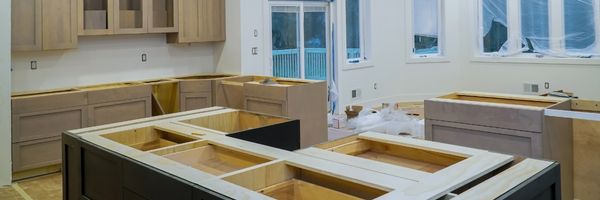Experts, activists, and decision-makers from all over the world gathered at the 2016 REVOLVE IPS Conference in Warsaw to discuss solutions to urgent social and environmental concerns. The conference, which was put on by the sustainability-focused communication group REVOLVE, took place from June 6 to June 8 in the center of Warsaw.
The conference’s theme, “Innovative Polymers for Sustainability,” put a special emphasis on using polymers, a material class frequently found in consumer goods, as a tool for sustainability. Participants talked about a variety of subjects, including reducing plastic waste, renewable energy, the life cycle assessment, and sustainable consumption.
The conference offered attendees networking opportunities as well as interesting discussions, interactive workshops, and exhibitors. The conference also featured a presentation of cutting-edge goods and solutions that showed how polymers could support sustainability.

Innovative home repair technologies
The home maintenance industry has undergone a revolution thanks to cutting-edge technology, which has simplified and streamlined the resolution of typical household problems. Smart home gadgets and other cutting-edge technologies have given homeowners access to a number of tools and solutions that have been previously only available to professional. In this post, we’ll examine a few of the most cutting-edge home repair technologies and how they’re altering how we care for our houses.
Home automation technology
Because they can automate and improve many areas of the home, smart home products are gaining popularity. Smart home appliances, security systems, and lighting can all help homeowners conserve time, energy, and money. For instance, a smart lock can offer remote access and remote monitoring, while a programmable home can learn your preferred temperature settings and make adjustments automatically.
3.0D printing
The field of home repair may undergo a revolution thanks to 3D printing technology. To avoid costly and time-consuming repairs, homeowners can use a 3D printer to make unique components and parts for their home systems and appliances. For instance, rather than waiting for a new part to arrive, a broken dishwashers handle can be quickly replaced with a 3d printing technology replica.

Augmented Reality
Augmented reality (AR) technology allows users to overlay digital information on the physical world, creating a more immersive and interactive experience. In the context of home repair, AR can be used to provide step-by-step instructions and visual aids for DIY projects. For example, an AR app can show users how to install a ceiling fan, highlighting each step and providing helpful tips along the way.
Drones
Another innovation with the potential to revolutionize the home repair sector is drones. Homeowners may use a drone to inspect house roof, drains, and other difficult-to-reach areas without using a ladder or hiring a professional. Drones with thermal imaging capabilities can also find leaks and other problems that could be hidden from view.
Virtual Helpers
Virtual helpers like Google Home and Amazon’s Alexa may offer advice and support for DIY projects around the house. Users can contact their digital assistant for help in troubleshooting their HVAC system or fixing a leaky faucet. Additionally, virtual assistants can set up appointments with local providers of services and offer recommendations for them.
The keynote talk by Dr. Janez Potocnik, a former European Commission for the Environment, was one of the conference’s highlights. In his discussion of the difficulties of achieving sustainable growth in the face of rising resource and energy demands, Dr. Potocnik stressed the significance of implementing circular economy principles to minimize waste and promote responsible consumption.
A panel discussion on sustainable fashion was also held at the conference to discuss the effects of the fashion industry on the environment and the requirement for more ethical and sustainable practices. Panelists spoke on issues like eco-design, ethical sourcing, and how crucial it is to cut down on textile waste.
Other panels and workshops covered subjects like sustainable tourism, green construction, and renewable energy. Participants had the chance to share their personal experiences and insights while learning from subject-matter specialists.
Overall, the 2016 REVOLVE IPS Conference in Warsaw was a fascinating and educational gathering of a variety of people that are dedicated to sustainability. The conference served as a forum for the discussion of new concepts, the creation of creative solutions, and the promotion of more ethical and sustainable business practices across a range of sectors.
